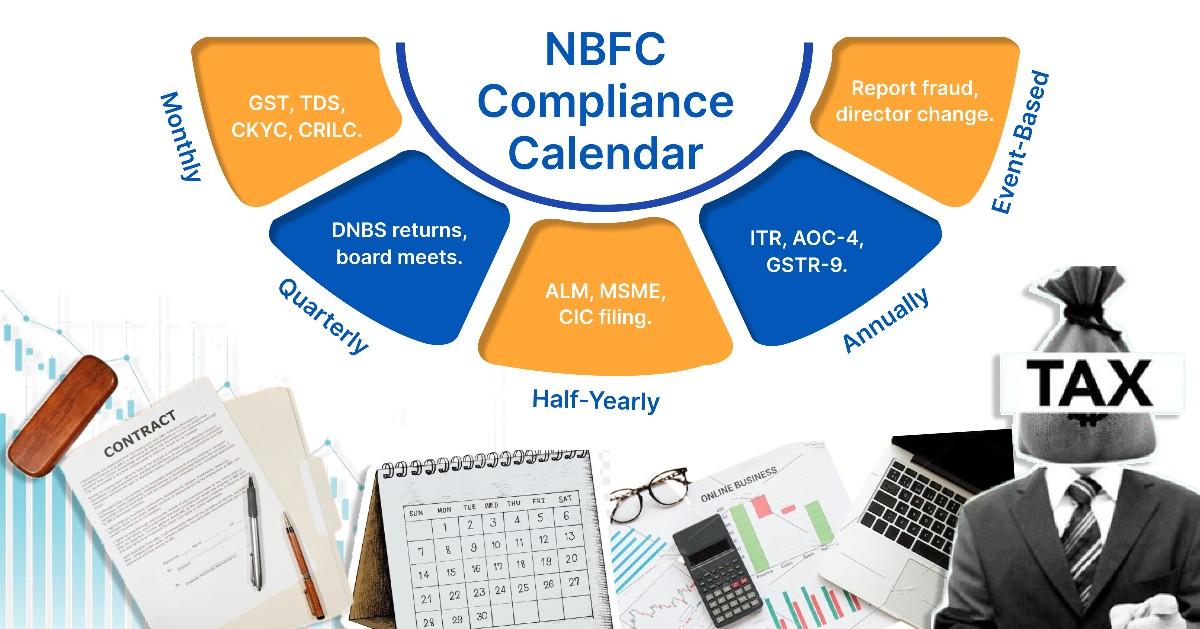A Non-Banking Financial Company (NBFC) is a financial entity providing diverse banking-like services without possessing a conventional banking license. These companies operate under the Companies Act, participating in activities such as lending, investing in securities, and asset financing. In essence, NBFCs function as financial intermediaries, delivering credit and other financial solutions outside the traditional banking system.
Purpose of NBFCs
The core purpose of Non-Banking Financial Companies (NBFCs) is to expand financial access and offer specialized services beyond traditional banks. They aim to:
- Boost financial inclusion, reaching underserved individuals and small businesses.
- Provide niche lending for areas like retail, infrastructure, and microfinance.
- Offer flexible, tailored financial solutions that meet diverse customer needs.
- Contribute to economic growth by funding key sectors.
- Drive innovation and competition within the financial landscape.
How an NBFC is Different from a Bank
While both Non-Banking Financial Companies (NBFCs) and Banks are crucial financial intermediaries, they operate under different regulations and have distinct functions. Here's a tabular comparison:
| Feature | Bank | Non-Banking Financial Company (NBFC) |
| Primary Regulation | Banking Regulation Act, 1949; RBI Act, 1934 (RBI) | Companies Act, 2013/1956; RBI (framework differs from banks) |
| Banking License | Requires a full banking license from the RBI | Does not hold a banking license |
| Deposit Acceptance | Can accept demand deposits (savings, current accounts) | Cannot accept demand deposits (only time deposits like FDs under specific conditions) |
| Payment & Settlement | Part of the payment and settlement system; can issue cheques, demand drafts | Not part of the payment and settlement system; cannot issue cheques drawn on itself |
| Credit Creation | Can create credit (through fractional reserve banking) | Cannot create credit like banks |
| Deposit Insurance | Deposits are insured by DICGC (up to ₹5 lakh per depositor) | Deposits are generally not insured by DICGC |
| CRR/SLR Maintenance | Mandatorily maintains Cash Reserve Ratio (CRR) and Statutory Liquidity Ratio (SLR) with the RBI | Not required to maintain CRR and SLR |
| Forex Transactions | Generally allowed to deal in foreign exchange | Limited to certain NBFCs with specific RBI approval |
| Scope of Services | Wide range: deposits, loans, credit/debit cards, wealth management, forex, etc. | Primarily lending, investment, asset financing, and specialized financial products |
| Flexibility & Speed | Stricter norms, often longer processing times | Generally, more flexible, quicker approvals, less paperwork |
| Target Audience | Broad customer base, including individuals, businesses, and institutions | Often caters to underserved segments, MSMEs, niche markets |
| Loan Interest Rates | Generally lower due to regulated funding costs | Can be slightly higher due to higher risk profile and funding costs |
What are the various types of NBFCs in India?
Outlined below are several categories of NBFCs operating in India, along with their roles in shaping the nation’s financial ecosystem:
1. Asset Finance Companies (AFCs)
Asset Finance Companies focus on providing finance for tangible assets such as machinery, vehicles, equipment, and more. They serve individuals, SMEs, and corporate clients by offering tailored financial solutions for purchasing essential assets. Through leasing and loan options, AFCs support business expansion and promote economic development.
2. Loan Companies
Loan Companies play a key role in the consumer finance market by offering personal loans, housing loans, education loans, and more. They also extend financial support to businesses in the form of trade finance, working capital loans, and project-specific funding. These companies help bridge the gap left by traditional banks, meeting unique financial requirements.
3. Infrastructure Finance Companies (IFCs)
IFCs are dedicated to financing infrastructure-related projects, thereby aiding national development. They primarily support sectors like transportation, telecommunications, power, and roads. By providing long-term and project-based financing, IFCs contribute to infrastructure creation and boost economic growth and quality of life.
4. Microfinance Institutions (MFIs)
MFIs play a pivotal role in financial inclusion by offering small loans, or microloans, to low-income individuals and self-help groups (SHGs). By funding micro-entrepreneurs and underprivileged communities, MFIs help them establish or grow small-scale businesses, reduce poverty, and support sustainable livelihoods.
5. Investment Companies
These NBFCs specialize in acquiring and managing financial instruments such as stocks, bonds, mutual funds, and securities. They cater to both retail and institutional investors, promoting investments across diverse asset classes. By leveraging financial market expertise, investment companies help in capital formation and foster responsible investment behavior.
6. Systemically Important Core Investment Companies (CICs–SI)
CICs–SI are a specific category of investment companies that significantly influence the financial sector. These NBFCs invest at least 90% of their total assets in the form of equity shares, debt, or other financial assets of group companies. Due to their potential impact on financial system stability, the RBI closely monitors and regulates CICs–SI to ensure systemic safety.












